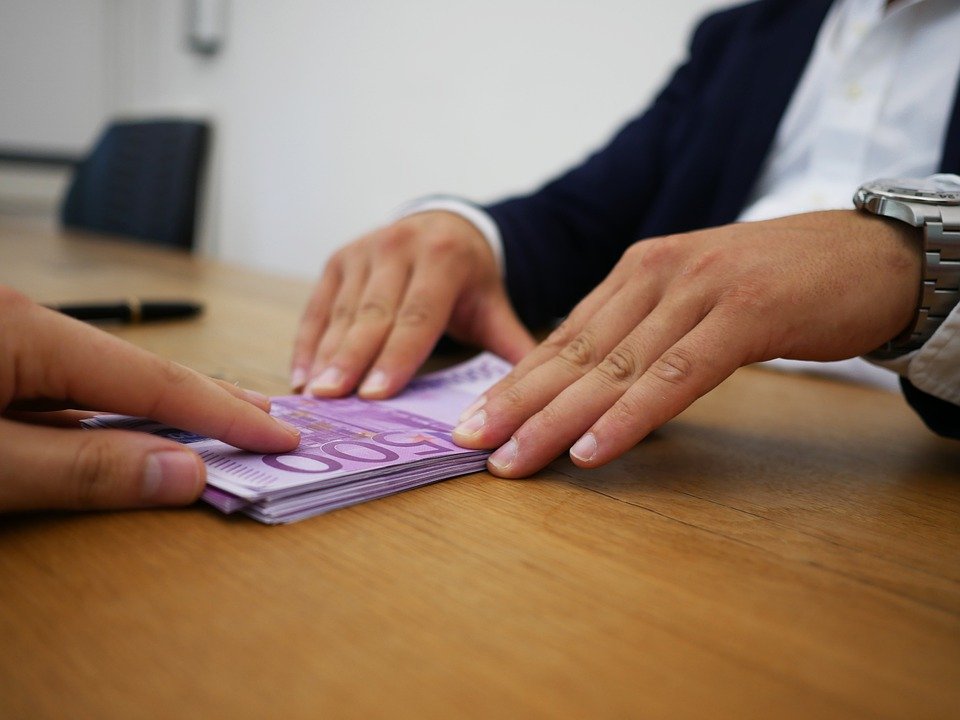Using Other People's Money

Strike up a conversation with a rich guy. Any rich guy. Especially a rich guy who has made the bulk of his wealth through owning a business. If you ask him what the best way to make money is, he will tell you many things. But one thing he tells you will likely be the same thing most of those rich guys will tell you.
Use other people's money.
Granted, in their context, they are referring more to using other people's money to get their business off the ground. Present a great idea for a business to a group of people interested in investing in a business, and if your idea is a good one and you can show those investors that you have the goods to deliver on the idea, they will open their wallets and ask you how much you need to get started.
This is not to say that the person presenting the business idea does not have any of his own skin in the game. Of course they do. For most of them, even while they are using other people's money to fund the start-up, the guy who had the idea wants to have a controlling interest in whatever business he is creating.
He will probably pony up 51% of his own money so that he can have that controlling interest.
How else can we use this idea of using other people's money?
It's not always about starting a business or even being in business. The concept really is the same. We want to use money that we did not have to go out and physically earn.
That's typically using other people's money.
You can break it down in a very simple way. Let's say I shop at Walmart often, and I like the store. I think the company offers good bang for my buck, and every time I go into their store I see hundreds and hundreds of people shopping there with their carts full of stuff.
Each one of those carts is really a basket of money.
If I invest in the company's publicly traded stock, I can enjoy a little share of each dollar the customers will spend. I am an owner, albeit a tiny one. But an owner nonetheless, and as such I enjoy the same benefits (or close to it) that any owner will enjoy.
Especially a share of the profits. Because Walmart stock pays their shareholders a quarterly dividend.
If I take that dividend and spend it, who's money have I spent? I mean, at the end of the day it is my money. Yes. But it was someone else's money that put it in my pocket in the first place. It was someone else's work that made that dividend possible. I did not have to punch a time clock to get it. Someone else did that so that they could spend it in the store I own a piece of.

I have always been adamant to point out that work is a necessary part of life, and I can't hammer that point home enough. Even for the businessman with the great idea who garners the monetary support of investors to get started, he had to fund his 51% controlling interest with his own money.
The work he did was the building block for creating his future wealth.
There is a common theme in most of my financial philosophy I share, and that is that it is always better to not simply work for a paycheck. But to work for a future. That is, to build a future wherein the money you make comes from other people's money. To be frugal throughout your life and save and invest as much money as you possibly can, laying the foundation for your future financial independence.
If you spend every dollar you ever make, and never consider what the potential future value happens to be of some of those dollars you earn over time, you will forever be forced to use your own money—and if that is the case, you will never achieve financial independence. You will forever be beholden to a job to get what you want and what you need.
The famous money man, Robert Kiyosaki, used the "running on a treadmill" analogy. And it's a good one if you think about it. It simply means you are in constant motion, forever running, but you are not getting anywhere. You always get off the treadmill exactly where you got on it.
Working, again, is noble and necessary. But in life there has to be an end game, right? I mean, at some point we want to be able to stop and smell the flowers, right? At some point we want to enjoy more of what life has to offer—and if we have done the work to lay that foundation, we can get to a place where that fulfillment of life and all it has to offer us is accomplished through other people's money at some point.

The dollars they spend at Walmart become our dollars to use as we wish.
I use Walmart to illustrate my point because it is a simple idea to digest. What you actually invest in to achieve your goal of financial independence one day is entirely up to you.
Maybe it's another company. Maybe it's starting your own business. Maybe it's real estate. Maybe it's the bond market. Maybe it's Forex. Maybe it's cryptocurrency. Whatever you decide, so long as it works for you and achieves the goal is what is important.
The bottom line underlying point is that you can choose to forever chase the almighty dollar forever, or you can find ways to let it simply come to you instead. You can find ways to get a little bit here and a little bit there of what other people spend their money on.
Until finally you have reached a point where you are almost entirely using other people's money for your own financial interests, goals, and needs.

